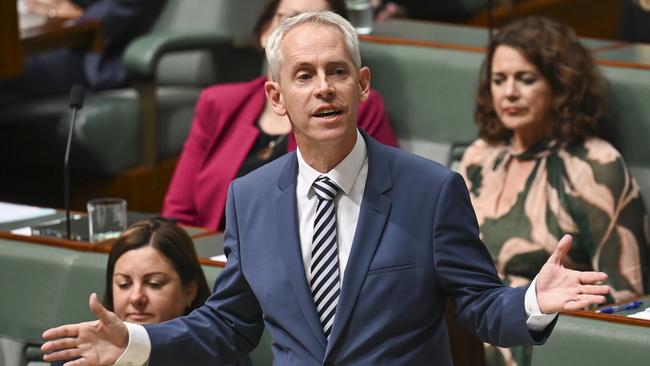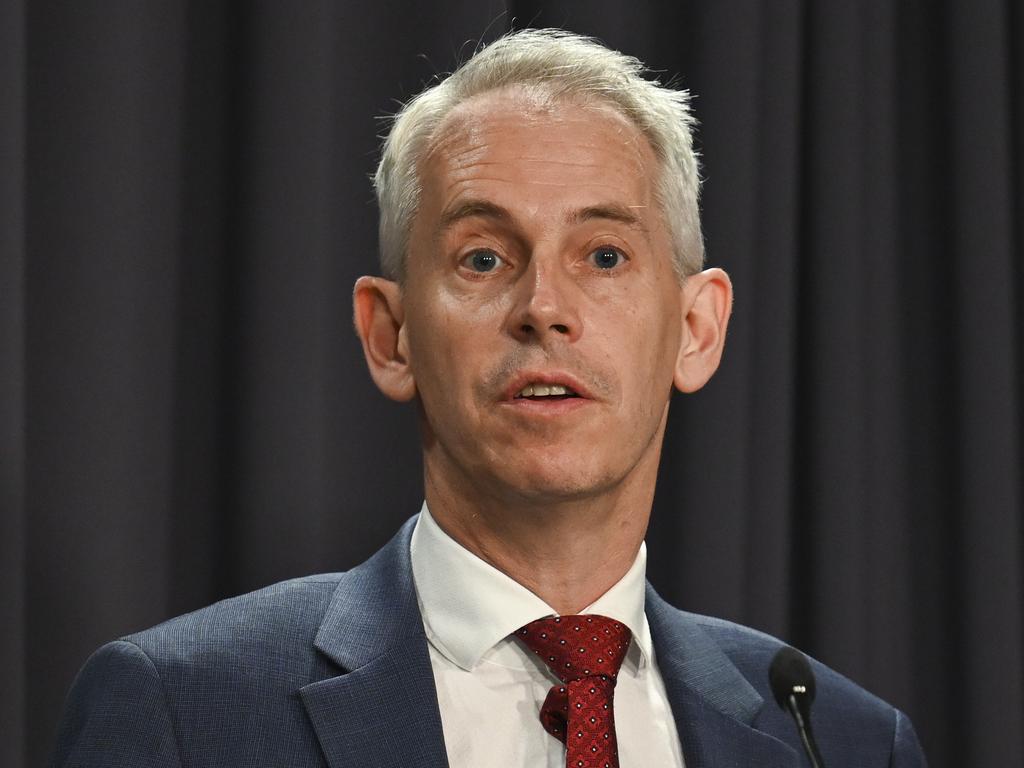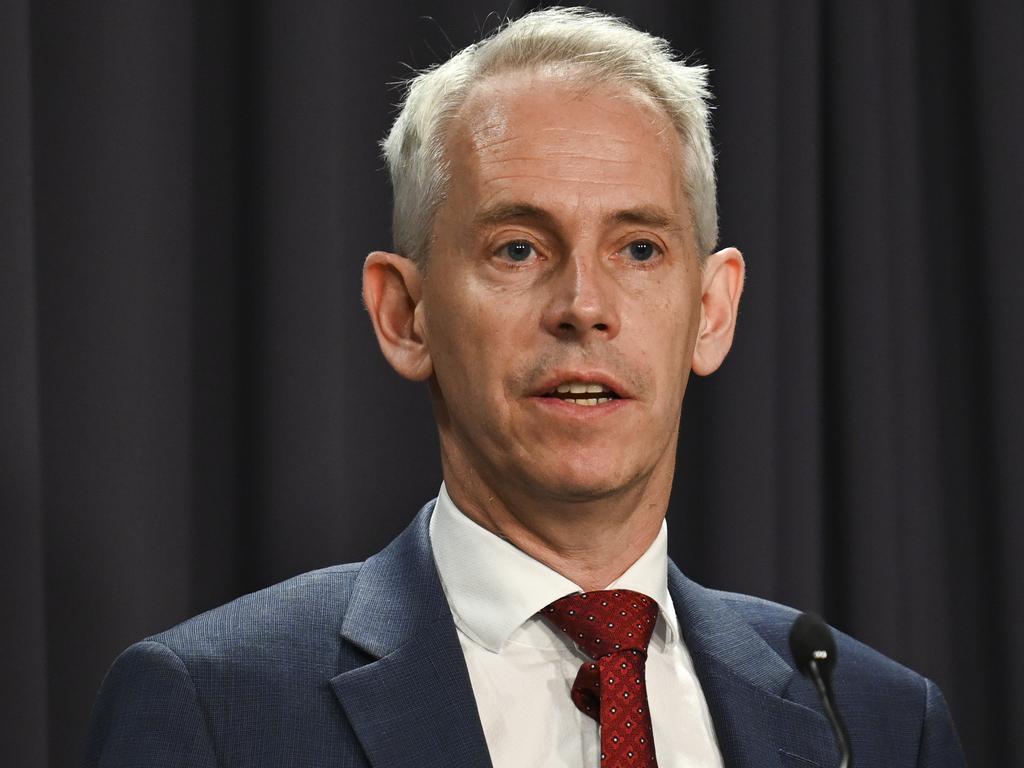Direction 99: Scramble to cancel visas ‘a legal risk’
Immigration Minister Andrew Giles’s rushed attempt to cancel the visas of foreign criminals in the wake of the Direction 99 debacle could expose the Albanese government to another legal battlefront.

Immigration Minister Andrew Giles’s rushed attempt to cancel the visas of foreign criminals in the wake of the Direction 99 debacle could expose the Albanese government to another legal battlefront, as non-citizens begin lodging appeals challenging the ministerial intervention.
A New Zealander convicted of aggravated armed robbery and an Indonesian woman given a year’s sentence for dealing with the proceeds of crime, who both successfully fought their deportation in the Administrative Appeals Tribunal earlier this year, have filed cases in the Federal Court.
Under mounting political pressure, Mr Giles embarked on a wave of visa cancellations after The Australian revealed his direction to grant foreign offenders with strong ties to the country greater tolerance in immigration proceedings had led to multiple offenders, including rapists, drug traffickers and repeat domestic violence perpetrators, overturning their deportation.
While New Zealand man Jamaal Jama – who held a knife to his female victim’s throat and threatened to kill her if she didn’t hand over money – and Indonesian national Selfiana Engelina, who told a court she thought she was collecting money her cousin won gambling, are the first known cases to file a court appeal, it’s understood at least three more challenges are in the pipeline.

When Mr Giles unveiled his new “strengthened” ministerial direction on June 7, he said he had cancelled 40 visas in less than a fortnight; a government spokeswoman declined to provide an updated figure on how many immigration matters he had intervened in since. “Ministers continue to cancel visas in the national interest when necessary, without hesitation,” she said.
Australian Lawyers Alliance spokesman and barrister Greg Barns said winning an appeal to a ministerial decision to cancel a visa was challenging, as lawyers had to establish an error of law had been made in deciding the case. “It’s not easy, you’ve got to prove jurisdictional error,” he said. “If you can show the decision-maker, the minister, ignored, overlooked or misunderstood facts, or materials, or clearly articulated arguments, that can give rise to what’s called jurisdictional error.
“So what you would be arguing is that because of the volume of material and the amount of time taken by the minister, that you can infer that they’ve failed to look at, or they’ve overlooked relevant facts or materials or substantial arguments.”
Mr Barns said a small handful of non-citizens had successfully argued in the past that then-home affairs minister Peter Dutton had not devoted adequate time or “active intellectual process” to properly considering their cases.
Maltese wife-killer Frederick Chetcuti had his visa cancellation overturned on a technicality in 2019, after it was revealed Mr Dutton had decided to overturn the decision that he could stay in Australia 11 minutes after the judgment was handed down.
In another case, an East Timor-born man, Helder Agapito Carrascalao, and a Tongan man, Tomasi Taulahi, convinced the Federal Court that the shortness of time Mr Dutton took to consider material before cancelling their visas meant he could not have “given proper, genuine and realistic consideration to merits”.
Mr Barns said such cases were rare occurrences, and the onus fell entirely on the applicant to prove the minister had failed to adequately consider the material.
“As those Dutton cases show, there’s a good deal of material for the minister to consider before making a decision, so the minister has to make sure he or she gives proper consideration to submissions made,” he said.
“Now the High Court has said you don’t have to consider every submission, but as the court says in Chetcuti, you’ve got to give active intellectual attention to the merits of the decision. Sometimes an inference can be drawn that because of the volume of material (and) time it took the minister to deal with material before him or her, it can be inferred there couldn’t have been active intellectual consideration given to it.”
SouthWest Migration and Legal Services principal solicitor Marta Mamarot said she was representing three non-citizens who had their visas cancelled amid the political firestorm surrounding Direction 99, with two still believed to be in the community.
Ms Mamarot said she was sceptical the revamped Direction 110 was substantially different to its predecessor, with only two major changes placing community safety above all other considerations and the removal of a clause concerning where an application spent their formative years being implemented.






To join the conversation, please log in. Don't have an account? Register
Join the conversation, you are commenting as Logout